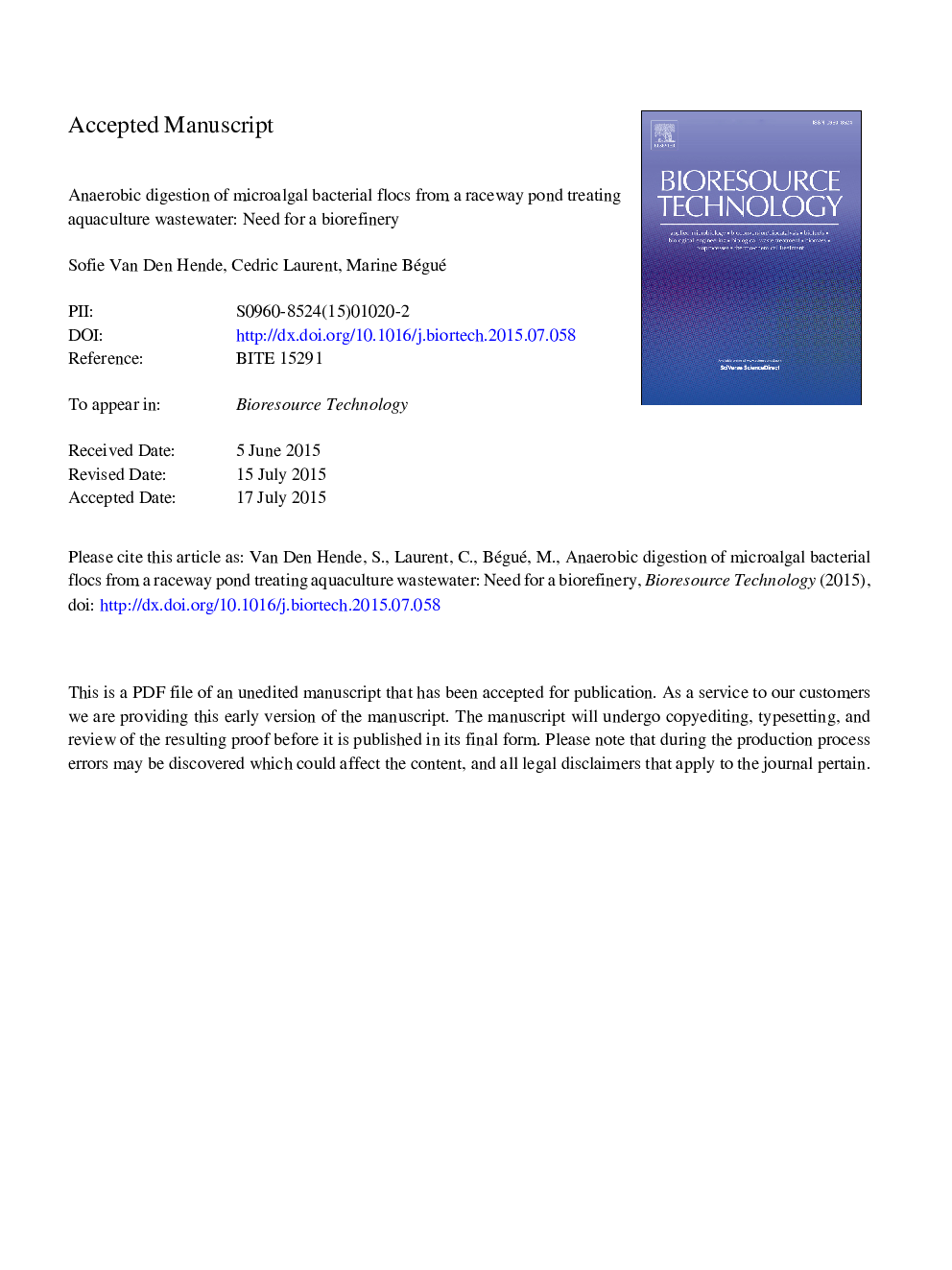| Article ID | Journal | Published Year | Pages | File Type |
|---|---|---|---|---|
| 7073403 | Bioresource Technology | 2015 | 35 Pages |
Abstract
An outdoor raceway pond with microalgal bacterial flocs (MaB-flocs) is a novel sunlight-based system to treat pikeperch aquaculture wastewater while producing biomass. The harvested MaB-floc biomass (33 ton TS haâ1 yâ1) needs further valorization. Therefore, the biochemical methane yield (BMY) of MaB-floc biomass was determined in batch experiments. The results show significant differences between the BMY of MaB-flocs amongst their harvest dates (128-226 NL CH4 kgâ1 VS), a low anaerobic digestion conversion efficiency (25.0-36.2%), a moderate chlorophyll a removal (51.5-86.9%) and a low biogas profit (<0.01 â¬Â mâ3wastewater). None of the pretreatment methods screened (freezing, thermal, microwave, ultrasonic and chlorination, flue gas sparging, and acid) can be recommended due to a low BMY improvement and/or unfavorable energy balance. Therefore, anaerobic digestion of this MaB-floc biomass should only be granted a supporting role within a biorefinery concept.
Keywords
Related Topics
Physical Sciences and Engineering
Chemical Engineering
Process Chemistry and Technology
Authors
Sofie Van Den Hende, Cedric Laurent, Marine Bégué,
